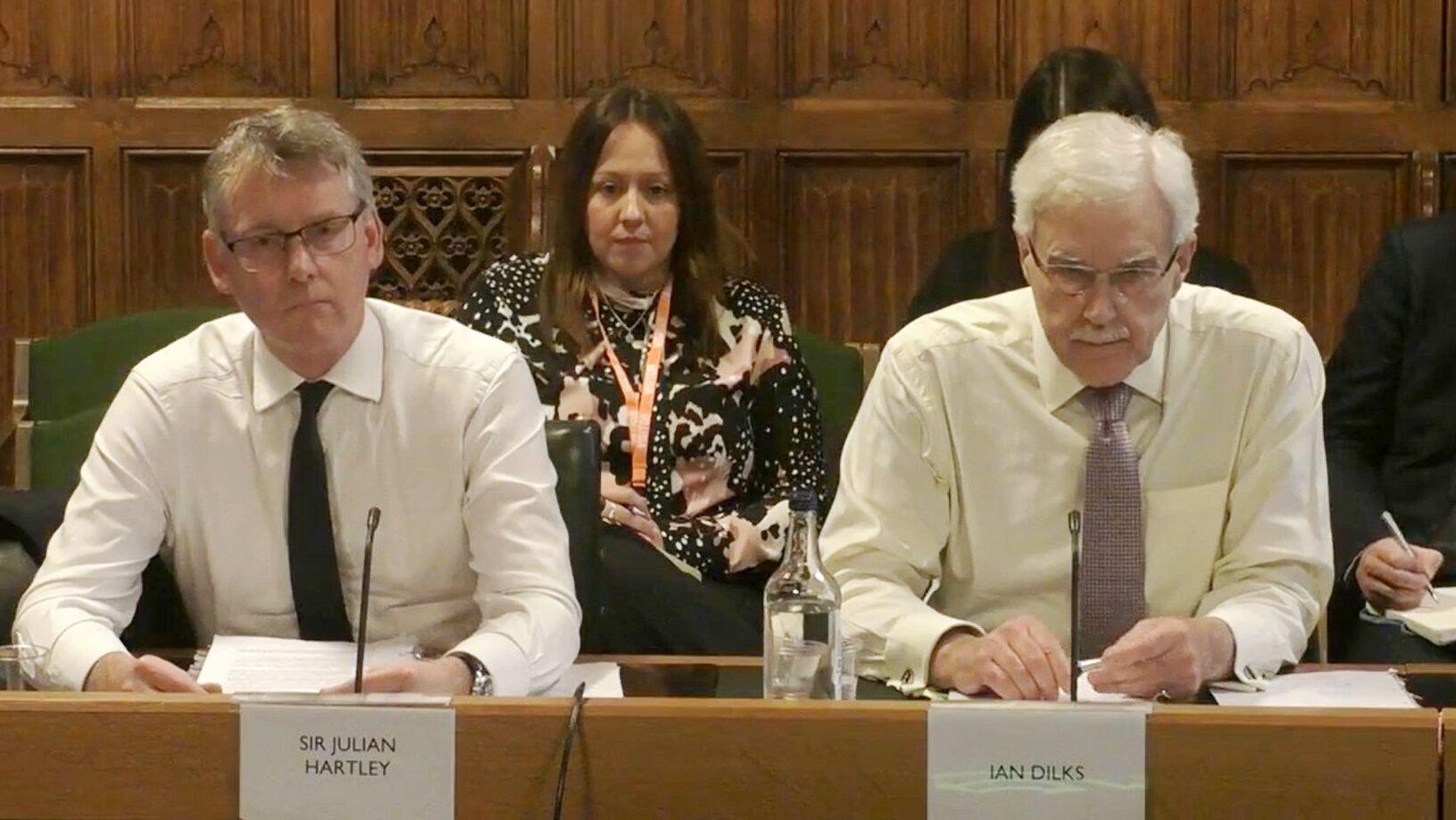Delivering a net zero NHS
As the UK’s largest employer and a major producer of greenhouse gases, the NHS has a huge role to play in meeting the government’s net zero target for carbon emissions. We report on the scale of the challenge post-COP26 and the transformations in services, attitudes and leadership needed to meet it.

In October 2020, a year before the COP26 climate change summit in Glasgow, all four UK health services made a landmark pledge to achieve net zero carbon emissions. Under the joint plan, the UK-wide NHS aims to reach net zero by 2040 for the emissions it controls directly (the “NHS carbon footprint”) and by 2045 for the emissions it can influence (“NHS carbon footprint plus”). The UK was one of 47 countries to commit to reduce carbon emissions from their health care systems at the COP26 summit.
The NHS is responsible for around 4% of the UK’s carbon footprint. This figure comprises direct and indirect emissions arising from NHS activity, including buildings, medicine production, patient and staff travel, transport, manufacturing and food and catering.
Medicines account for 25% of total NHS emissions, with inhalers and anaesthetic gases alone responsible for 5% of the NHS’s wider carbon footprint. Operating theatres, which are major users of medical equipment and supplies, have energy requirements four to six times that of other hospital areas.
The NHS has reduced its carbon footprint by 30% over the last ten years—more than required by the UK Climate Change Act, according to NHS England/Improvement (NHSE/I). Last year, NHSE/I said the NHS was “on-track” to meet the net zero ambitions it outlined in October 2020, with a total emissions reduction of 1.26 megatonnes expected in 2021-22.
The Covid-19 pandemic has had a mixed effect on carbon emissions. Increased use of personal protective equipment (PPE), and more intensive use of heating, ventilation, air conditioning (HVAC) systems, together with the national Covid vaccination programme roll-out, are all likely to have increased the NHS’s carbon emissions. But interim analysis suggests these have probably been “offset” by reductions, such as a major fall in transport emissions from NHS staff and visitors, and an increase in the uptake of virtual appointments.
What’s the government doing?
The UK government is investing £280 million in decarbonising the NHS estate in England through the Public Sector Decarbonisation Scheme. The money will be used to improve energy efficiency, decarbonise heating and lighting systems, improve building fabric and install solar panels. Work is also underway on creating a net zero fleet of ambulances—a fully electric vehicle is already carrying patients in Birmingham and another hybrid ambulance is in development.
The government says it is working to deliver broader sustainability commitments, including those laid out in the NHS Long Term Plan, ranging from reducing single-use plastics and water consumption to improving air quality.
NHSE/I plans to introduce a net zero standard for new hospital buildings and a “sustainable supplier framework” will be published later this year. But Nick Watts, chief sustainability officer with NHSE/I, admits that delivering on targets year-on-year, “gets harder as you go”.
He told a Health Foundation webinar last December that the NHS was focused on reducing emissions, rather than trying to offset them, for example, by planting trees or installing solar panels across the NHS estate.
“You can’t power the NHS [even] with the entire rooftop of the NHS, which shouldn’t be a surprise to anyone,” he said. “We could pretend and say we’re offsetting, but unless you were able to exceed the total power consumption, it’s not an offset.”
In January 2021, the NHS invested £1 million in pioneering projects to reduce surgical waste, support greener, faster transport of vital medicines, and ensure the safe removal of environmentally harmful gases used in pain relief during labour.
What are NHS organisations doing?
NHS trusts and Integrated Care Systems (ICSs) were required to submit refreshed Green Plans and identify board members with specific responsibility for net zero by the end of March 2022. But this work is taking place amid huge financial and operational pressures, including dealing with winter, the omicron wave and Covid recovery.
“Some of our members are very much ahead in this agenda but it varies from area to area,” says Rezina Hakim, senior policy advisor with the NHS Confederation. “For those parts of the system that are not as mature in their journey, it’s not because they don’t want to. The difficulties they face [are] around the time, the headspace, and the financial challenges.”
Hakim says there is “no extra money” for this agenda, although NHS organisations can bid for funds from the general Public Sector Decarbonisation Scheme.
NHS Providers said a recent survey of members showed just over a quarter (27%) were on track to submit their individual plans and contribute to a system-wide plan by April 2022. Some 61% said they still “had a lot of work to do”, while 11% of trust leaders admit they “do not feel confident” about meeting the deadline.
NHS Providers told Healthcare Manager that trusts were at “different stages of progress and continue to face significant operational pressures as a result of the Covid-19 pandemic”. However, many trusts had already changed procurement, transport and consumption practices, the organisation said.
Its member survey found that 61% of trusts had already changed their procurement practices to “prioritise” local and environmental sustainability, while 51% had switched to cleaner vehicles. But half of trusts have yet to develop a plastic reduction plan or switch energy suppliers to prioritise green energy sources.
Many trusts have focused on schemes which offer clinical and financial benefits such as using low carbon alternatives to anaesthetic gases, or relatively quick steps such as switching to low energy LED lights.
Experts stress the need for carbon impacts to be examined “across the care pathway”, to avoid simply shifting environmental harms from one sector or episode of care to another.
NHS Providers has called for stronger co-ordination of the sustainability agenda across government. It said trusts are “encountering barriers” to sustainability that can only be tackled as a “common purpose” by working with other actors in communities, such as local schools and housing bodies, transport planners and those involved in leading economic resilience.
Chain reaction
Nearly two thirds of the NHS’s carbon footprint comes from its global supply chain. The net zero strategy made clear that by 2030 the NHS would stop purchasing from suppliers who are not aligned with this ambition.
At COP 26, leading global suppliers pledged to decarbonise the NHS supply chain by 2045 at the latest. Experts at the Health Foundation webinar stressed the global context in which the NHS functions and the need for health systems around the world to work together.
Sonia Roschnik, climate policy director for Healthcare Without Harm, said: “The supply chain is everybody’s supply chain. What we don’t want is one system saying they don’t want this kind of product because it’s not sustainable, and it ends up getting sold in Mexico for example, where it’s harder to manage.”
NHS Providers called for a clear “service-wide steer” to support large-scale improvement in the sustainability of supply chains and for trusts to have access to sufficient capital to support net zero ambitions. It says the work of NHS Supply Chain centrally “should not defray a need to purchase locally, where such sourcing is possible and offers social value”.
1.4 million decisions
National standards and funding green schemes are key levers to encourage more sustainable practice across the NHS. But the more difficult part, according to Nick Watts, “is the stuff we don’t control directly”—paticularly the decisions made by NHS staff.
“The biggest lever to get to net zero is the 1.4 million decisions made every single day,” he said. “It’s why we need passionate clinicians, the Health Foundation and the Royal Colleges to be out there leading the way on what this tangibly means.’’
Experts say harnessing the support and commitment of staff is vital, so they can contribute to initiatives in their workplaces and in their personal lives. Employment contracts, discounts and subsidies can also incentivise green alternatives, such as cycle to work schemes.
Clinicians in England can access grants of up to £10,000 to develop relatively small-scale ideas to reduce emissions—on individual wards, for example—and larger sums of around £100,000 are available for bigger projects.
“First we have to get those new ideas then we have to start socialising them,” Watts said, suggesting that a new Clinical Fellow Scheme launched by his office (mip.social/green-cfs) was one way to encourage clinical leaders to become the sustainability champions of the future.
Challenging cultural norms
But managers and clinicians still face cultural barriers to change that can curb their enthusiasm. Brighton and Sussex ENT surgeon Professor Mahmood Bhutta, who chairs a national study on improving environmental sustainability in surgery, outlined an example of this at the Health Foundation webinar.
Bhutta said that in many hospitals it had become the “cultural norm” to wear surgical gloves, even when hand washing was perfectly safe. “In my trust, pre-pandemic, we used 14 million gloves—single use pieces of plastic,” said Bhutta. “I worked out if you put those end-to-end, [they] would stretch from Brighton all the way to Mumbai—and that’s just one hospital.”
Bhutta warned that, by taking little or no account of environmental harms, infection control guidance inadvertently leads to the over-procurement of gloves, many of which are produced by cruelly-exploited migrant labour in countries such as Bangladesh and Indonesia.
He urged the NHS to boost investment in re-usable products that can be safely sterilised or repaired. “We need a bit more institutional leadership to say, ‘no’. Reduce and reuse is the mantra that we need to get [over] to people. Most doctors are passionate about this, they just need to be given the tools and the authority to create that change,” he explained.
The prevention agenda
Meeting the net zero challenge will also require a transformation in the way care is delivered in the 21st century, experts say. The NHS Long Term Plan envisages carbon savings coming from reduced presentations in A&E, primary care and outpatients, reduced staff and patient mileage, reduced bed days, fewer drugs being prescribed and less intensive procedures.
Sonia Roschnik, international climate policy director for Healthcare Without Harm, told the Health Foundation webinar: “Our only way to get to a lower-carbon, resilient and equitable health system around the world is to focus in on prevention and models of care where the patient as a carbon user in healthcare also has responsibility [for] what that looks like.”
She said there would be a bigger role for things like social prescribing and telemedicine and the NHS could learn as much about these from colleagues in the global south as in the global north.
“We’ve got to get better at prevention,” Watts added. “It’s just good public health to demedicalise, deprescribe and encourage people to get out and exercise. It’s good healthcare and also good for the planet.”
Roschnik said people in many developing countries still did not have access to universal health coverage and it was vital for wealthier countries to help them deliver “green universal health coverage” through new models of care that would be “equitable, resilient and decarbonised”.
“If we don’t support countries to do that and if they adopt our current western model, we’re heading for disaster in terms of carbon footprint let alone any justice issues,” she added.
Resources: case studies and good practice
- NHS Providers’ guide to good practice in tackling climate change and reducing emissions
- Greener NHS system progress report from NHS England
- More information on the chief sustainability officer’s Clinical Fellow Scheme
- The Green Surgery Challenge from the Centre for Sustainable Healthcare
- After COP26—what will it take to get the NHS to net zero? Watch the Health Foundation webinar in full
Photos: Seth Reese/Unsplash; Arno Senoner/Unplash
Related News
-

Regulating the managers: more questions than answers
The Labour government’s plans for regulating NHS managers are still shrouded in mystery, and the three options on the table each have their pros and cons. Rhys McKenzie weighs up the choices and gauges the views of MiP members on the best way forward.
-

The inspector falls: why the CQC needs a fresh start
After years of chaos, the Care Quality Commission urgently needs to rebuild trust and credibility with the public and the services it regulates. What needs to change and what are the priorities for new boss Sir Julian Hartley? Alison Moore reports.
-

Voice, value and vision: what analysts need from the NHS
Data analysts play a vital role in an NHS which is increasingly data-driven and focused on public health trends. But the NHS faces fierce competition for skilled analysts and many feel the health service fails to value them or fully use their talents. Alison Moore reports.
